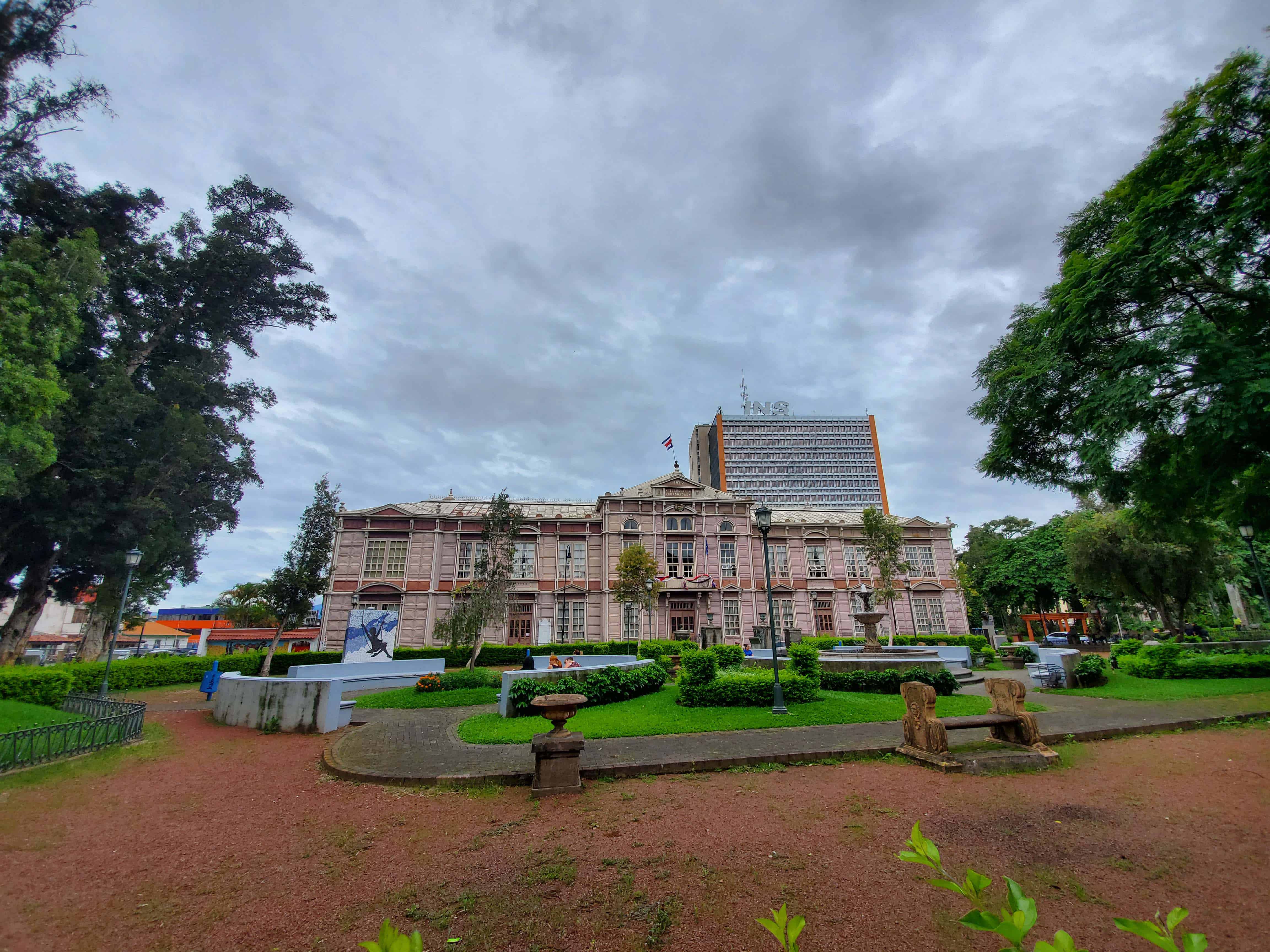Between the enthusiasm of the children and the fears of the parents, thousands of students across Costa Rica returned to face-to-face classes on Monday, after almost a year of distance learning due to the pandemic.
There are 1.19 million children and young people enrolled in the public educational system, which reopened its doors under a model that combines face-to-face and distance lessons.
Some private schools had restarted face-to-face classes a week earlier.
Yustin, a fifth grade boy from Buenaventura Corrales School, in downtown San José, said that on the first day teachers explained the sanitary protocols: walk on a disinfecting carpet, pass a temperature check and apply alcohol gel before entering the classroom.
“It was very nice, but it was only a few hours and some classmates unfortunately did not come. They will have to come tomorrow,” he said after leaving class. Yustin wore a face mask, as the national policy requires.
The resumption of face-to-face lessons occurred at a time when Covid-19 cases have shown a marked decline in this country of 5 million inhabitants, which has already started a vaccination campaign for health and safety workers as well as for older adults.
After a little more than 1,000 daily cases of Covid-19 infections in early January, Costa Rica has registered between 400 and 500 daily cases in the last three weeks.
Fear and enthusiasm
However, those numbers did not convince some parents, worried that their children would be infected.
“In my case, I have decided not to send my daughters to the in-person school to preserve their health and that of my family,” said Luisa Angulo, in a video released by the Repretel TV channel.
Angulo considered that young children might not understand the risks they face and would be apt to break protocols.
“Although the cases of Covid have had a considerable reduction, it is not a number that gives us peace of mind,” she said.
But the return to face-to-face classes was enthusiastically received by many young people who were reunited with their classmates.
“I am grateful to return to face-to-face classes to share with my classmates and implement the new in-person and virtual modality. We are going to get the most out of it,” said student Zeidy Huete, from the Professional Technical College of the town of Purral, in the northeast of the metropolitan area.
The official ceremony for the start of classes was held at that school, which applied rigorous rules of distancing and cleanliness to avoid spreading Covid-19.
“This safe return to classes, with all the required health protocols and with a combined education modality, is part of our commitment to fight for quality education for all people, without distinction, throughout the country,” said President Carlos Alvarado in the ceremony.
In turn, the Deputy Minister of Education, Melania Brenes, indicated that the months of February and March will serve as tests to expand the number of students who can return to face-to-face classes.
The return of the students was an incentive for the nearly 8,000 student transporters, who were unemployed in 2020 due to the closure of schools.
“Today is a holiday. Today we return to provide the service to our customers, complying with all the protocols that the authorities ask us,” said driver Stanley Sandoval, who in a video asked parents to monitor compliance with sanitary regulations.
‘A decision we took as a country’
“The return to presence is a decision we took as a country, a commitment in which we must all join our efforts,” Brenes said. “It is challenging and, as on other occasions, we trust that Costa Rica will move forward.”
During Monday’s celebrations, the Presidency promoted a digital literacy bill that it considers “fundamental” to help protect vulnerable populations.
The project would provide funding for technology equipment and internet connections at education centers across Costa Rica.
During distance learning last year, Costa Rica held lessons online, and the Education Ministry published educational materials via TV and radio. Some 35% of students didn’t have a reliable home internet connection, schools reported.






